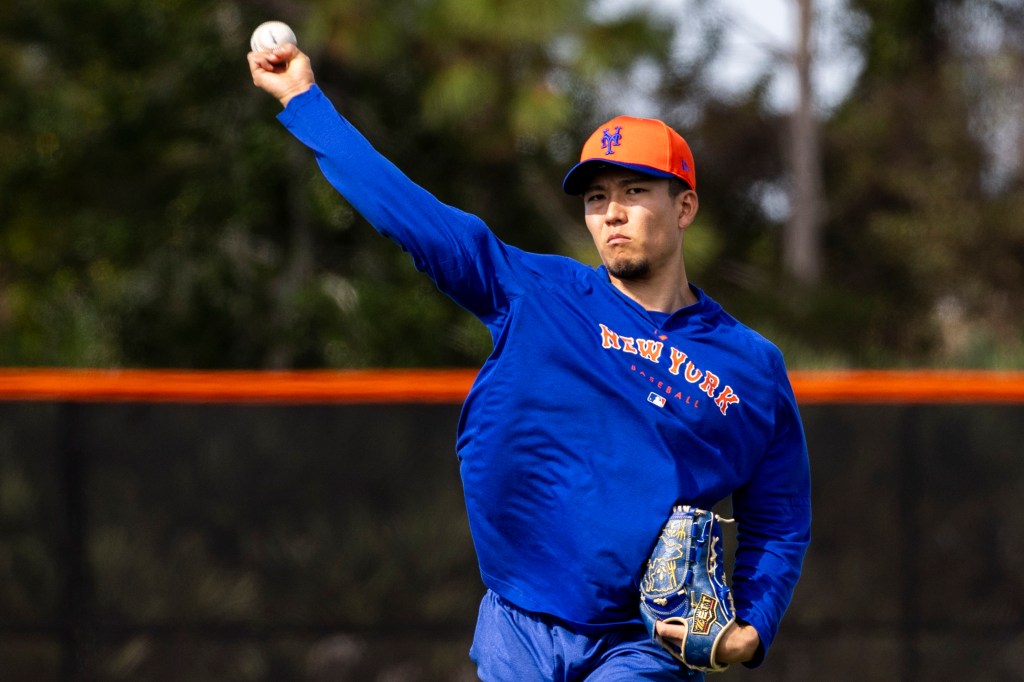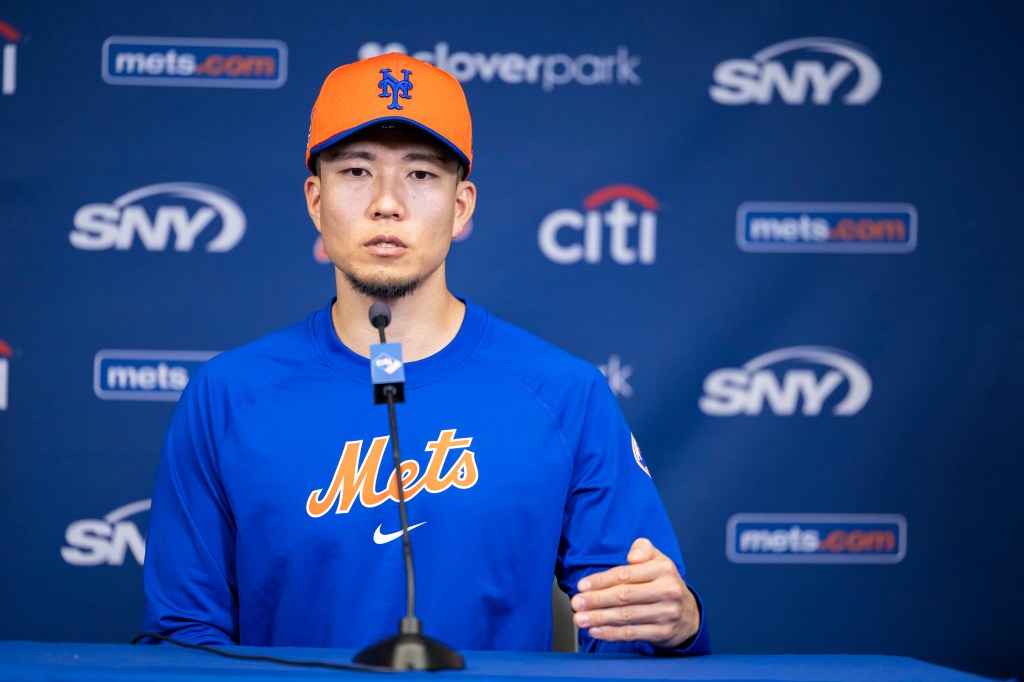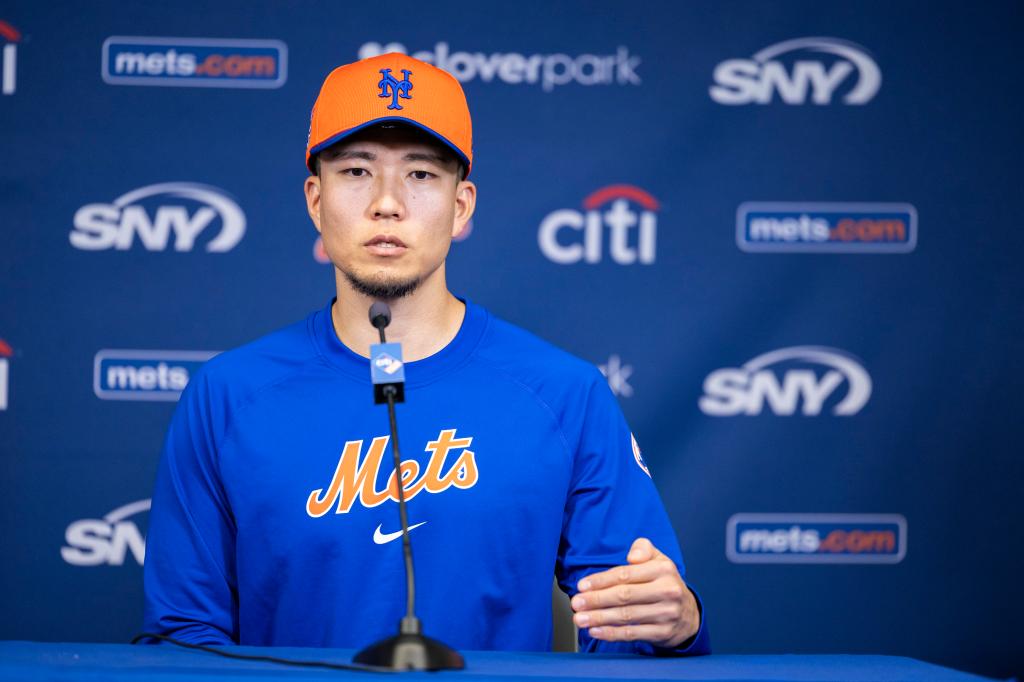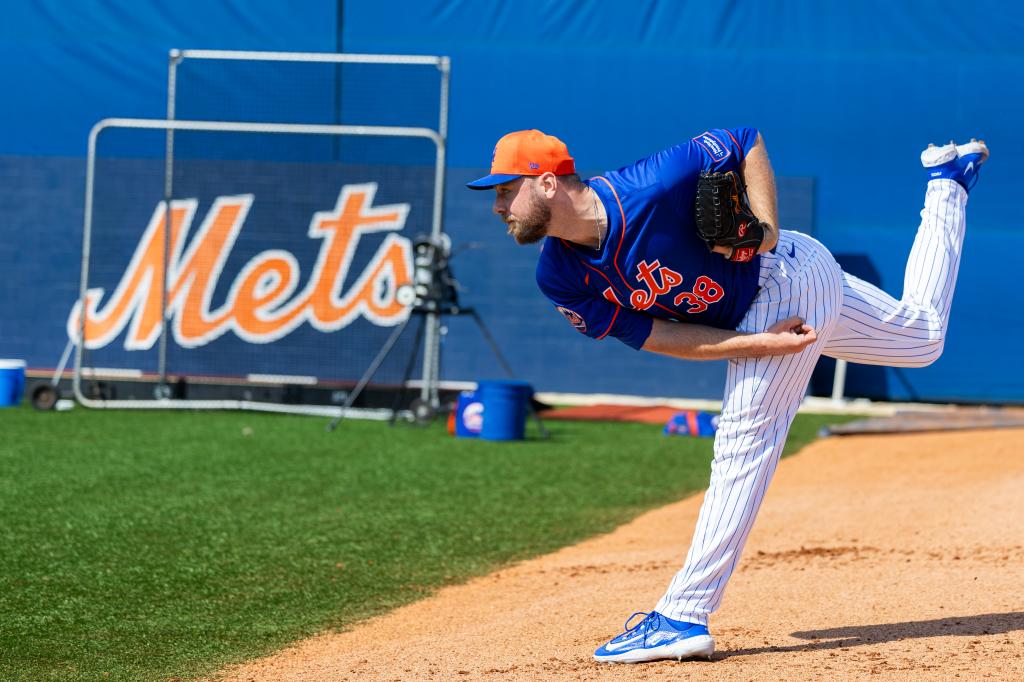Kodai Senga expected to start season on injured list with shoulder strain
Contact The Author
PORT ST. LUCIE — Spring training began last week, but it didn’t officially arrive for the Mets until Thursday, when the Opening Day roster took a hit.
Kodai Senga was diagnosed, following an MRI exam, with a moderate posterior capsule strain in his right shoulder and has been shut down from throwing, according to president of baseball operations David Stearns.
The Mets’ ace is expected to begin the season on the injured list, according to Stearns — who wouldn’t speculate on how much time Senga will miss.
“What I can say at this point comfortably is we don’t expect Opening Day, but I do expect him to make a bunch of starts for us this year,” Stearns said at Clover Park. “This is not a surgical-type problem.”
Spring training has tormented the Mets in recent years.
Last March, Edwin Diaz underwent surgery to repair the patellar tendon in his right knee after tearing it during a celebration at the World Baseball Classic and missed the season.
Also last spring, Jose Quintana underwent rib surgery that kept him out until after the All-Star break. Justin Verlander strained a teres major muscle near the end of camp last year and missed the first month.
Two years ago, Jacob deGrom had elbow discomfort during spring training and didn’t pitch again for the team until August.
Senga, 31, had a difficult time recovering from his initial bullpen session in camp, according to Stearns, but such fatigue isn’t uncommon for pitchers just arriving to spring training.
But when the fatigue persisted following Senga’s ensuing session, on Tuesday, there was concern.
The Mets’ plan is to test their rotation depth early. Stearns indicated that Tylor Megill, Jose Butto and Joey Lucchesi are the primary candidates to replace Senga for the start of the season.
“We knew we weren’t going to go through a full season with just five or six starters and here we are,” Stearns said. “We’ve got plenty of options. I am looking forward to watching that competition in camp and I am confident we will have guys step up.”
Blake Snell and Jordan Montgomery highlight the free-agent starting pitchers still available, but Stearns downplayed the possibility of looking externally for a replacement.
“We’re always going to be opportunistic and hear what’s out there, but I don’t think this really changes our thought process,” Stearns said.
Senga, who started 29 games for the Mets last year and recorded 202 strikeouts over 166 ¹/₃ innings with a 2.98 ERA to finish second in the NL Rookie of the Year voting, said his priority is to get through this season.
The early downtime, he said, will increase his chances of reaching that goal.
“It’s very honorable to be a part of this rotation and that is what I strive for,” Senga said through his interpreter. “It is regrettable that I am not able to be part of it in the early season, but I have to be positive and look forward to being out there with the team.”
It’s not the first time Senga has encountered shoulder problems: He said there was an issue five or six years ago that was caused by his mechanics.
Senga’s medicals before he signed a five-year contract worth $75 million with the Mets after the 2022 season indicated there were issues with his elbow.
But Senga said the elbow did not bother him last season or during his winter/spring training workouts.
Never Miss a Story
Sign up to get the best stories straight to your inbox.
Thank you
The Mets mostly pitched Senga on extra rest last season to ensure he wouldn’t be overtaxed in adjusting from Japan, where starting pitchers work only once in a week.
Senga said if asked his opinion now, he would recommend pitching as part of a six-man rotation, but it’s a conversation that can wait until he’s ready to return.
Despite the prognosis, manager Carlos Mendoza expressed a sense of relief.
“Every time you send a guy for an MRI you are expecting the worst,” Mendoza said. “In this case we got a little bit of good news, right? That was the biggest thing. Once the doctors took a look at him, and we were able to have those conversations with the doctor it made me feel a little bit better.”







